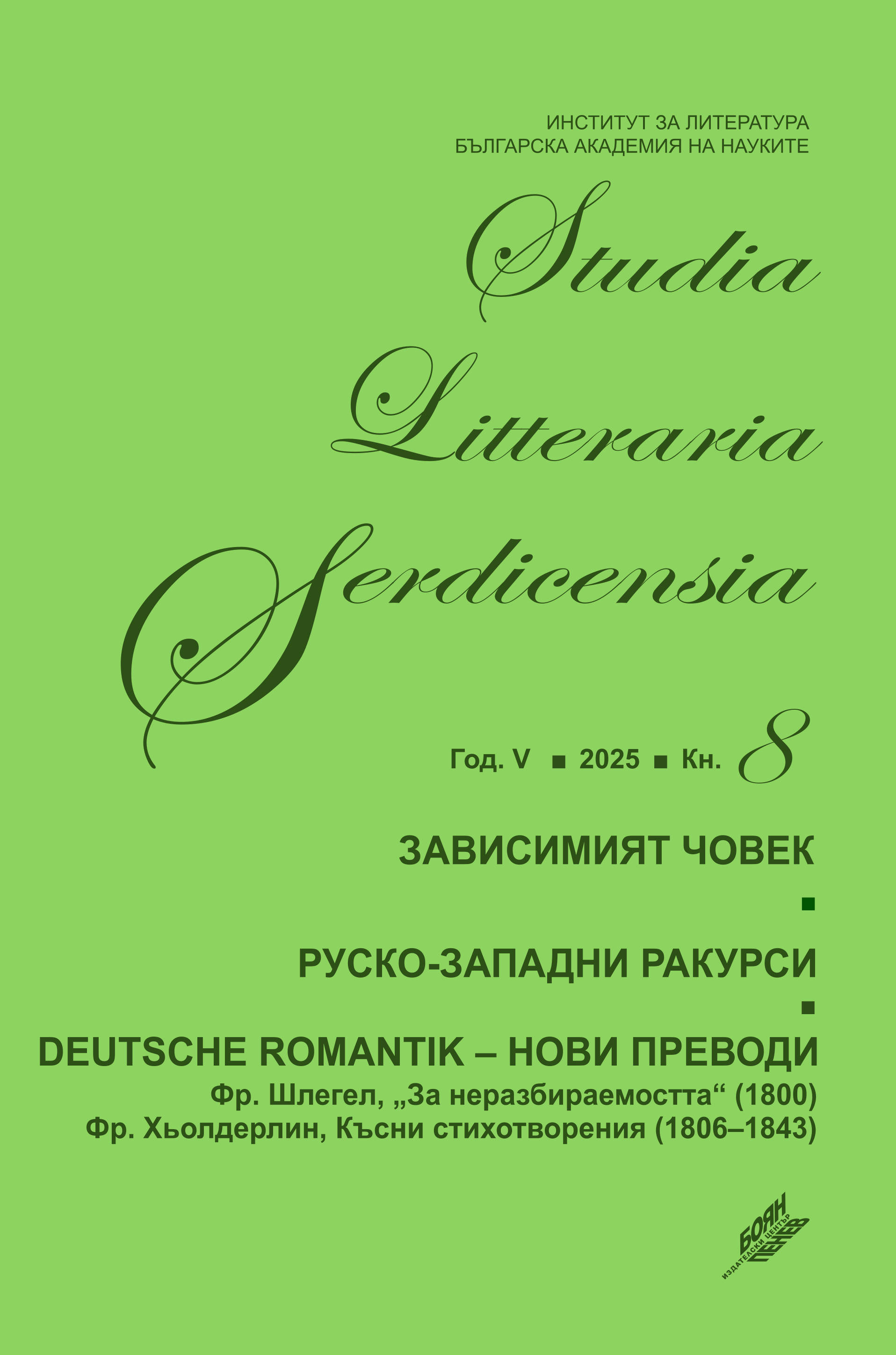After presenting known and less known facts about the voynuks and the dervendjis, the article makes an attempt to clarify the reasons for the different stage of development of the different voynuk and dervendji villages. According to the author’s thesis, the privileged voynuk and dervendji status of part of the population in certain villages was not the main reason for their gradual transformation into significant economic and cultural centres, playing a major role in the Bulgarian history during the Revival period. Besides their geographic location in secluded mountainous areas and away from the main roads, a real reason was the adaptation of the inhabitants to the natural environment. The presence of pasture-grounds contributed to the development of the stock- breeding and the trade with wool, meat and dairy products, which were among the resources for developing some crafts. Certain settlements, on the other hand, developed because of the availability of resources for other crafts – production of rose oil, logging, metal-working, etc. The ethnographic features of the Balkan region can be added to the geographical situation, the natural environment and the development of certain economic sectors. Despite the fact that they had service farms (bashtina), in the situation of total control of the state over the agriculture and tax oppression, the voynuks, as well as the rest of the Bulgarians, could not easily turn into large landowners who directed their production mainly toward the market. For this, it was necessary to have such power and influence that belonged to the first big Turkish landowners, who usually came from the category of the askers (the military men), and in whose hands was the provincial administration. Although later on some Bulgarians obtained enough financial capital to turn into wealthy collectors of tax on sheep and goats, and of other taxes, and even large landowners, the primary means of their prosperity was stock-breeding, trade and crafts. It was precisely in these areas of economic activity that Bulgarians managed to get out of their dependence and total control of the state. Here, the Christians were sable more effectively to resist tax arbitrariness even with unauthorized means, and these dynamic and profitable industries managed to compensate it. They did not rely as much on tax privileges and service landowning, which actually made them dependent on the goodwill of the central authority.
PRIVILEGED STATUS AND DEPENDENCY. MYTHS AND REALITY ABOUT THE SITUATION OF THE VOYNUK AND THE DERVENDJI ORTHODOX POPULATION IN THE EARLY CENTURIES OF THE OTTOMAN RULE
-
-

Krastyo Yordanov
Institute for Historical Research – Bulgarian Academy of Sciences, BulgariaKRUSTYO YORDANOV (Plovdiv, 1975) is a senior assistant professor at the Institute for Historical Research at the Bulgarian Academy of Sciences. In 2013, he defended his doctoral dissertation on the topic: “The Voynushka Institution in the Bulgarian Lands in the 15th–16th Centuries.” His main research interests are related to the study of the population with special duties and status, the settlements and everyday life of the Bulgarian Orthodox population during the early centuries of Ottoman rule, the various Ottoman institutions, the social history of various professional and ethno-confessional groups, historical geography and demography.
-
-
 Abstract:ABSTRACT
Abstract:ABSTRACTAfter presenting known and less known facts about the voynuks and the dervendjis, the article makes an attempt to clarify the reasons for the different stage of development of the different voynuk and dervendji villages. According to the author’s thesis, the privileged voynuk and dervendji status of part of the population in certain villages was not the main reason for their gradual transformation into significant economic and cultural centres, playing a major role in the Bulgarian history during the Revival period. Besides their geographic location in secluded mountainous areas and away from the main roads, a real reason was the adaptation of the inhabitants to the natural environment. The presence of pasture-grounds contributed to the development of the stock- breeding and the trade with wool, meat and dairy products, which were among the resources for developing some crafts. Certain settlements, on the other hand, developed because of the availability of resources for other crafts – production of rose oil, logging, metal-working, etc. The ethnographic features of the Balkan region can be added to the geographical situation, the natural environment and the development of certain economic sectors. Despite the fact that they had service farms (bashtina), in the situation of total control of the state over the agriculture and tax oppression, the voynuks, as well as the rest of the Bulgarians, could not easily turn into large landowners who directed their production mainly toward the market. For this, it was necessary to have such power and influence that belonged to the first big Turkish landowners, who usually came from the category of the askers (the military men), and in whose hands was the provincial administration. Although later on some Bulgarians obtained enough financial capital to turn into wealthy collectors of tax on sheep and goats, and of other taxes, and even large landowners, the primary means of their prosperity was stock-breeding, trade and crafts. It was precisely in these areas of economic activity that Bulgarians managed to get out of their dependence and total control of the state. Here, the Christians were sable more effectively to resist tax arbitrariness even with unauthorized means, and these dynamic and profitable industries managed to compensate it. They did not rely as much on tax privileges and service landowning, which actually made them dependent on the goodwill of the central authority.
Keywords:

